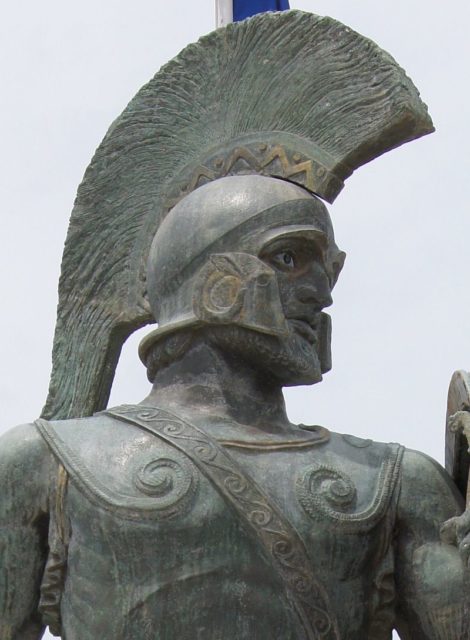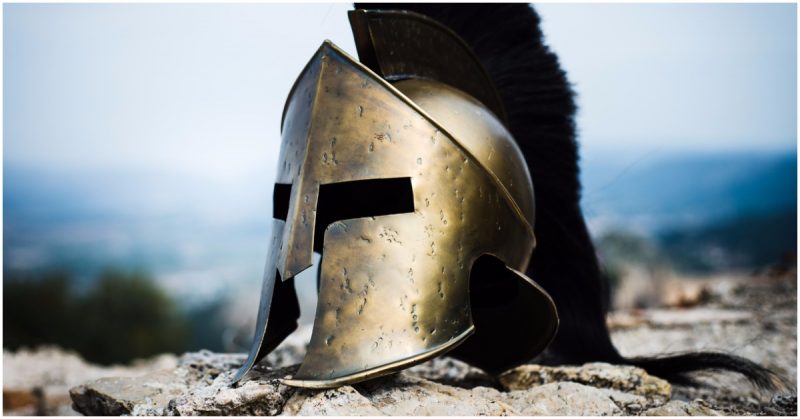The Kingdom of Sparta is one of the most famous city states of ancient Greece. The harsh military upbringing given to its male citizens has made its name a watch word for harsh austerity and discipline.
Ruled by two kings at a time, Sparta’s monarchy helped to shape this military great. So who were these men?
Agis I (11th century BC)
Agis I lived on the cusp of Sparta’s recorded history, at a time when the division between fact and legend is unclear. Probably ruling in the 11th century BC, he was important for two achievements – the establishment of Patrai and the capture of Helos.
At the time of Agis I’s rule, Spartans were looking outwards, creating colonies in Asia Minor. Agis himself was responsible for establishing a port city called Patrai on the north shore of the Peloponnese, expanding Sparta’s influence and access to maritime trade. Though a militarised society, the Spartans needed the wealth of trade and agriculture, just like any other nation of the time.
According to tradition, Agis also conquered the coastal town of Helos. Such maritime expansion was vital, as the sea was the main means of transport, trade and communication in the ancient Mediterranean world. When the town’s inhabitants tried to throw off the Spartans they were put firmly into their place, becoming the subservient class in Spartan society known as Helots. More than slaves but less than free men, they would provide the poorly trained and equipped bulk of later Spartan armies.
Anaxandridas II (?550-520 BC)
Half a millennia later, the historical record was more firmly established, and we see the reign of Anaxandridas II. A stern man who took pride in the Spartan ethic, he believed that his countrymen’s fearlessness in battle came not because they valued life less, but because they valued it more, and were unwilling to spend it unwisely.
Anaxandridas’s discipline showed a fairness that might surprise some. He made sure that time was taken in court cases where the defendant might be executed, not wanting to see a man die out of error or haste.
By this point, the Spartans had positioned themselves as defenders of Greek freedom, both from outside intervention and from tyrants, a word which then meant a one-man leader rather than a dictator. But freedom meant less when it came to conquering others. Anaxandridas led the Spartans in defeating Tegea, putting his country in charge of two-fifths of the Peloponnese.
He then took on Argos. A formal battle arranged between two armies of 300 men failed to settle the war, but the Spartans beat the Argives in a full pitched battle.
Anaxandridas’s reign established Sparta as the dominant force in the region, setting the nation up for its next challenge.
Leonidas I (490-480 BC)

Anaxandridas’s son Leonidas I is now the most famous of Spartan kings. Unusually for a king, he had been through the same harsh military upbringing as other Spartan citizens, making him a great warrior in the field as well a capable politician and commander.
Faced with a Persian invasion of Greece, Leonidas became a prominent leader in the Greek struggle for independence. His Spartan upbringing made him the most capable commander in the whole Greek alliance, and he was given command of the allied army as it prepared to drive back the invaders.
It quickly became clear that the Persians had the overwhelming advantage in numbers, and that the only hope for the Greeks was to use the land to their advantage. Leonidas therefore led his troops to the narrow pass at Thermopylae. There they held off a far larger Persian force for two days before being outflanked. Leonidas, along with 300 Spartans and a few allies, remained in place to hold the ground while the rest of the army retreated. They were all killed, but their sacrifice bought the rest of Greece time to prepare and defeat the Persians.
Pausanias (409-395 BC)
Rising to the throne at a time when Sparta dominated the region around it, Pausanias showed that a nation of soldiers would not always produce warlike leaders.
In 405 BC, a Spartan fleet under the admiral Lysander defeated the Athenians at the Battle of Aegospotami. Athens, one of the other great Greek city states, was now week and ripe for the picking. Pausanias laid siege to the city, while Lysander blocked its grain supplies through the city of Piraeus, and the Greeks were forced to negotiate, giving up their existing government.
This could have been an opportunity for Sparta to seize control of Athens. But fearing Lysander’s intentions, Pausanias instead withdrew his army. For this he was put on trial back in Sparta, as the city’s leaders thought he had let their enemies retain control of Athens. He was acquitted, but the seeds of disaster had been sewn.
In 395, Lysander and Pausanias were again in charge of Spartan forces, this time attacking Thebes. Their failure to cooperate led to Lysander’s defeat by the Thebans, in which he was killed. Pausanias, intimidated by the situation, withdrew his own forces, giving victory to Thebes. Seeing another trial in his future, Pausanias fled his fellow Spartans and died in exile. Under him, Sparta was at the height of its power. His removal showed that its strong leadership came not just from its kings, but from all the citizens.
Agesipolis I (395-380 BC)
The Spartans are primarily remembered for their discipline and courage, but the cunning of their leaders also played a part in their success.
Agesipolis I was only a child when he became king, and even once he came of age his military actions were unimpressive. But in 385 he proved his worth in an expedition against Mantineia. Diverting the river Ophis to run below the town’s walls, he used running water to undermine the soft foundations of the defences. Seeing that their walls were about to fall, the defenders surrendered.
Agesipolis died on campaign, but though in this respect he was more glorious that Pausanias, the cause of death was not. Catching a fever on campaign, he died at the age of thirty, cutting short a promising military career.
